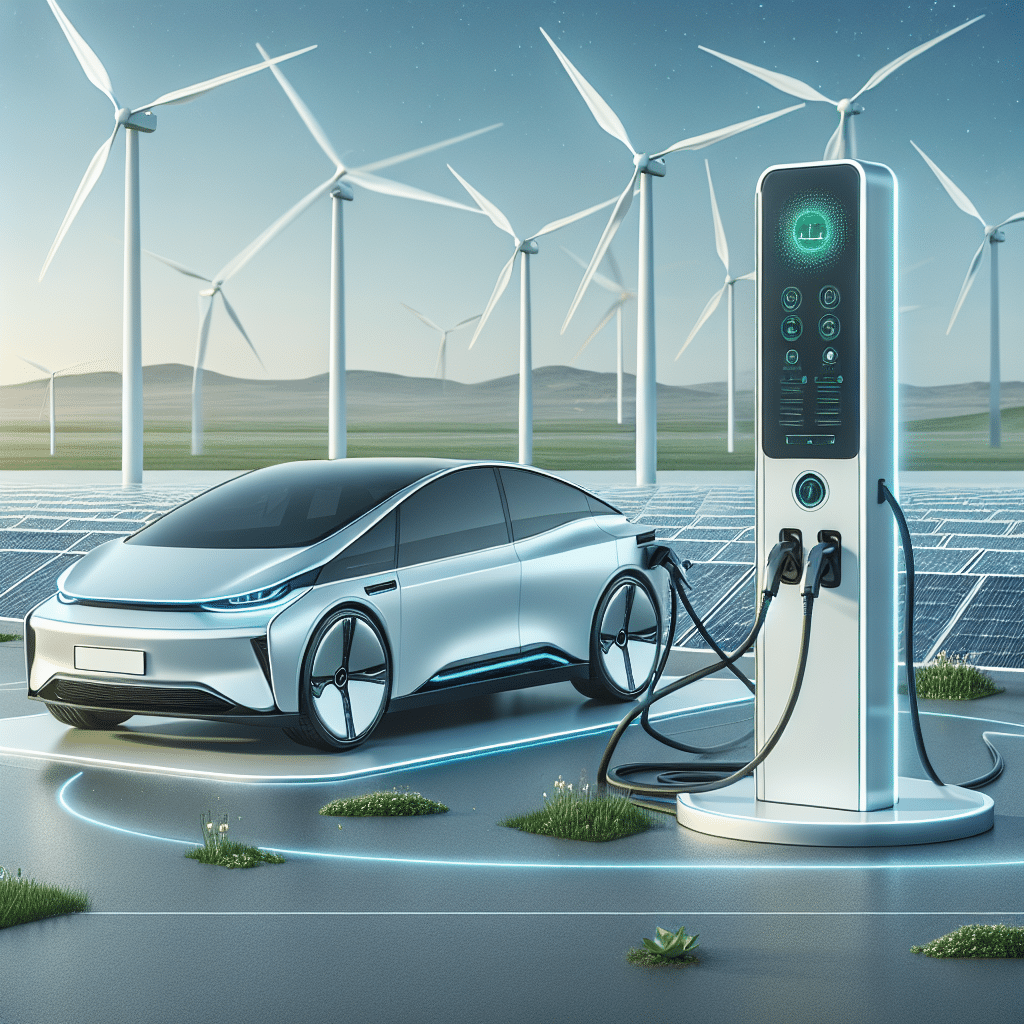Understanding Smart Charging Solutions for Electric Cars
What Are Smart Charging Solutions?
Smart charging refers to an advanced management system that allows electric vehicles (EVs) to communicate with the electricity grid and charging stations. Unlike traditional charging, which is often static and straightforward, smart charging utilizes technology to optimize energy consumption, improve grid stability, and offer significant cost savings to electric vehicle owners.
The Components of Smart Charging Systems
-
Communication Interfaces: Smart charging relies on bidirectional communication between the EV, charging station, and grid. Protocols like OCPP (Open Charge Point Protocol) facilitate this interaction, enabling a seamless experience for users.
-
Smart Meters: These devices monitor the consumption and generation of electricity in real-time, enabling users to optimize their charging according to electricity rates and grid demand.
-
Load Management Systems: These systems act as traffic controllers, ensuring that multiple vehicles can charge simultaneously without overloading the grid or infrastructure.
-
Renewable Energy Integration: Smart charging solutions can be connected to renewable energy sources, like solar panels, allowing users to charge their EVs using clean energy, reducing their carbon footprint.
Key Benefits of Smart Charging
-
Cost Savings: Smart charging can significantly reduce charging costs. Users can take advantage of off-peak electricity rates, thereby saving on their electricity bills. Demand response programs allow users to receive incentives from utilities for charging during low-demand periods.
-
Grid Stability: By managing the timing and rate of EV charging, smart systems can prevent grid overload during peak demand, ensuring stable power supply and reduced infrastructure strain.
-
User Convenience: Smart charging apps can provide real-time alerts about charging status, charging station availability, and estimated costs, enhancing the charging experience for EV owners.
-
Environmental Impact: By optimizing the use of renewable energy in charging, smart solutions further reduce the carbon footprint associated with electric vehicles.
Types of Smart Charging Solutions
-
Home Smart Charging Stations: These devices are equipped with Wi-Fi or cellular connections to allow users to control and monitor their home charging station via a smartphone app. Features often include scheduling capabilities to take advantage of off-peak rates and integration with home energy management systems.
-
Public Smart Charging: Public charging stations equipped with smart technology enable features like dynamic pricing, real-time availability tracking, and load balancing. Users can find nearby charging stations through mobile apps that provide up-to-date information on availability and pricing.
-
Fleet Smart Charging: Companies with electric fleets can implement centralized smart charging solutions. These systems manage the charging of multiple fleet vehicles, optimizing for both time and cost efficiencies while ensuring that vehicles are fully charged based on operational requirements.
-
Vehicle-to-Grid (V2G) Technology: V2G technology enables electric vehicles to not only draw electricity from the grid but also return it when necessary. This feature can help stabilize the grid during peak demand times and provide financial incentives for vehicle owners who participate in these programs.
Market Trends in Smart Charging Solutions
The market for smart charging solutions is experiencing significant growth. Factors driving this trend include:
-
Increased EV Adoption: As more consumers turn to electric vehicles, the demand for efficient charging solutions is rising. Projections indicate exponential growth in EV sales, leading to a parallel increase in the need for advanced charging infrastructure.
-
Government Support: Incentives and regulations aimed at promoting EV adoption, such as tax breaks and subsidies for charging stations, are contributing to the expansion of smart charging technologies.
-
Technological Advancements: Innovations in telecommunications, data analytics, and energy management are enhancing the capabilities of smart charging systems. The use of artificial intelligence and machine learning allows for improved load forecasting and user engagement.
Challenges Facing Smart Charging Solutions
Despite their many benefits, smart charging solutions face several challenges:
-
Infrastructure Investment: The initial expenditure required to install smart charging infrastructure can be significant, which may deter some potential users or municipalities from investing.
-
Standardization Issues: The lack of uniform standards in communication protocols and charging technologies can complicate interoperability between different manufacturers and systems.
-
Cybersecurity Concerns: As with any connected device, smart charging systems are susceptible to cybersecurity risks. As hackers target critical infrastructure, protecting these systems becomes paramount.
Future of Smart Charging Solutions
The future of smart charging solutions is bright, with numerous innovations on the horizon:
-
Integration with Energy Storage Systems: Future developments may see greater collaboration between smart charging and energy storage technologies, enabling homes and businesses to manage energy more effectively.
-
Enhanced User Interfaces: Advanced user interfaces leveraging augmented reality and artificial intelligence could provide even more interactive and informative user experiences.
-
Decentralized Energy Trading: The rise of blockchain technology could facilitate peer-to-peer energy trading, allowing EV owners to sell surplus energy back to the grid or to other users.
Case Studies of Smart Charging Implementations
-
California’s Electric Vehicle Infrastructure Program (EVIP): California has implemented one of the most sophisticated smart charging networks in the world, integrating real-time data to adjust pricing based on demand and availability.
-
Amsterdam’s Charging Network: This city has developed a public charging network that allows users to reserve chargers through a mobile app, significantly improving the convenience of public charging.
-
Greenlots & Hawaii’s Smart Grid: This partnership aims to distribute renewable energy effectively while managing EV charging loads, leading to a more sustainable electric vehicle ecosystem.
Conclusion
Smart charging solutions are revolutionizing the way electric vehicles interact with the power grid. Their ability to enhance user experience, drive down costs, and contribute to grid stability underscores their importance in the future of sustainable transportation. As technology continues to evolve, smart charging will play a pivotal role in shaping the electric mobility landscape.
